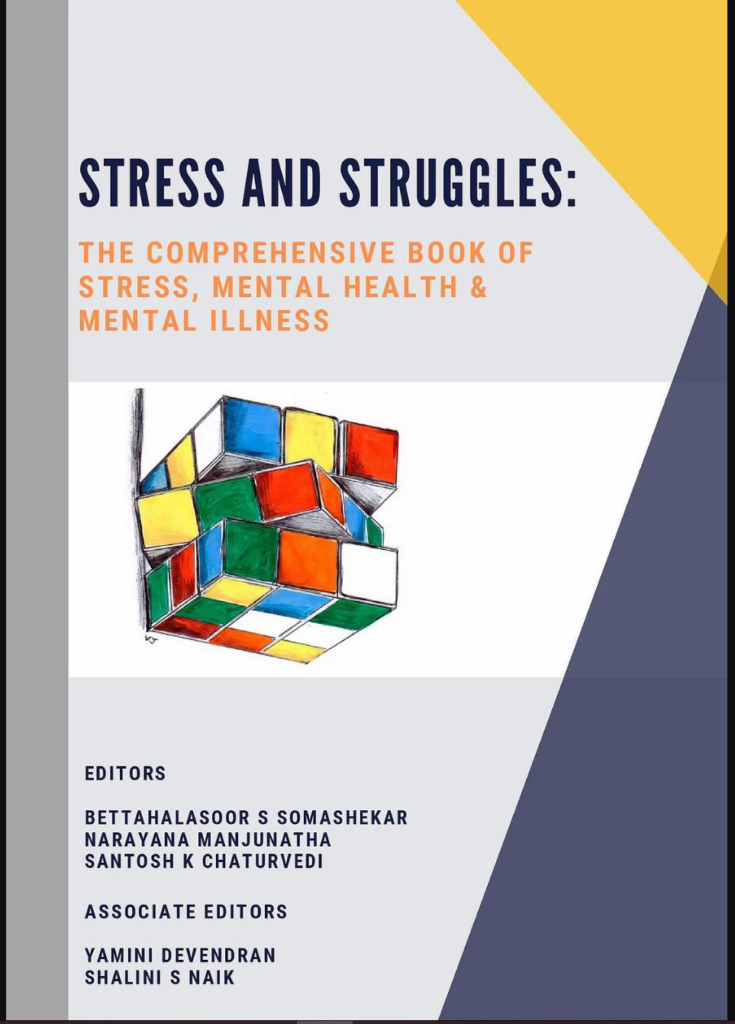Volume 11 Issues 1 January, 2021

Stress and struggles, is written by experienced mental health professionals from reputed institutions like NIMHANS Bengaluru, AIIMS Delhi, CIP Ranchi and Indo-UK stress and mental health group. The authors provide concise and up-to-date information about various aspects of stress including history, conceptual evolution, physiological basis of stress, effects of stress on ageing, stress and various physical and mental illnesses, and management of stress.
Stress is a complex and dynamic human experience affecting various biological systems such as neuronal, hormonal and immune systems. Chronic stress leads to altered cognitive functions, disruption in sleep patterns and can even hasten ageing via numerous changes at cellular levels. In recent times stress has been attributed as a cause or contributor to almost all chronicnon-communicable disease including mental illnesses. The sources of stress are multi-factorial including changes in the family structure, values, roles and increasing desires, expectations political systems, war, geographical conflicts, environmental calamities and several social and economic factors. Stress is believed to cause or influence the course of plethora of medical conditions such as Irritable bowel syndrome, hypertension, heart disease, diabetes and many other conditions through various mechanisms including altered immune response, endocrine responses, healing process and changes in lifestyle to name a few.
Stress research has shed light on the impact of psychological, social and environmental factors on a person’s mental health, on set of mental illness and role of preventative measures. Stressful events can lead to mental disorders like acute stress disorder, post-traumatic stress disorder, adjustment disorder and reactive psychosis. In other mental disorders stress may not be obvious but it is essential to make a diagnosis. The experience of mental illness itself can be a source of stress not only for the sufferer, but also to the family members. Concepts of resilience, coping and stress management are also described including psychotherapy and pharmacological treatments for stress and related disorders.
The book is organized into five parts, comprising 36 chapters which makes it easy to pick and read any topic of interest. Illustrations, charts and tables help in understanding the topics easier. The book is primarily intended for health care trainees and medical professionals acrosss pecialties who are interested in understanding various aspects of stress, but it would also be a good read for anyone who wants to know how stress affects health.

